SOFAZ transfers forecast to rise in second half of 2015
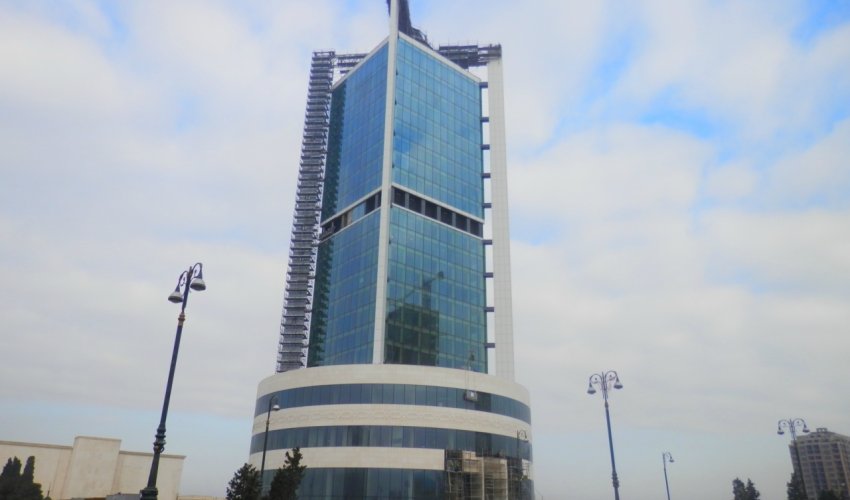
In the first half of 2015 the US dollar value of the State Oil Fund of Azerbaijan (SOFAZ, the sovereign wealth fund) declined by 3.6% from the start of the year. This was mainly because of exchange-rate movements, rather than lower oil prices; SOFAZ income and outgoings were almost equal in January-June. In the second half of the year, however, we expect SOFAZ transfers to the budget to increase, which will lead to a significant fall in the Fund's assets.
Nevertheless, the total SOFAZ transfer is likely to be below the level set out in the 2015 budget. To keep the budget deficit in check, we expect the government to continue to hold spending below the planned level in the second half of 2015, primarily by reducing expenditure on capital investment and construction. Given lower than expected expenditure in the first half, we will revise down our budget deficit forecast in our next report from 3.3% to 2.8% of GDP.
According to the 2015 budget, the transfer from SOFAZ is due to total Manat10.4bn (US$9.9bn) this year. In the first half of 2015, however, the transfer was just Manat3.56bn, less than 35% of the budgeted annual total. Income from the energy sector stood at Manat3.8bn, compared with Manat6.4bn in the first half of 2014, despite the devaluation of the manat against the dollar in February (which should boost income from oil sales in manat terms).
The low level of transfers in January-June could indicate that, in view of lower oil revenue, the government has decided to downsize the transfer this year from the Manat10.4bn indicated in the budget in order to limit the depletion of SOFAZ.
Alternatively, the government may have decided to backload the transfer, perhaps to give it time to assess the impact of lower oil prices on the economy. In most years, SOFAZ transfers have been relatively evenly spaced between the four quarters of the year, but not always. In 2008 and 2011, transfers in the first half of the year accounted for only 33.4% and 27.3% of the year-end total respectively.
In order to meet its budget deficit target, the government must either increase SOFAZ transfers in the second half of 2015 (in line with the budget plan) or cut expenditure sharply. According to the 2015 budget, expenditure is due to increase by 12.8% year on year in nominal terms, while revenue is to rise by 5.6% compared with 2014.
In January-June, however, expenditure fell by 1.6% year on year, while total revenue declined by 16.4%, in part because of low SOFAZ transfers. If these trends were to be maintained in the second half of 2015, The Economist Intelligence Unit estimates that this would lead to a deficit of Manat3.9bn, equivalent to around 5.5% of GDP. However, the government is
unlikely to be willing to accept such a large deficit, which is almost double its official target of 2.8% of GDP for the year; in April the Ministry of Finance announced that it was not planning to issue Eurobonds this year, which suggests that it does not expect borrowing to be significantly higher than planned.
Budget adjustments
In March Fitch, a credit rating agency, reported that the government was adjusting its budget in response to lower oil prices. On April 20th, however, the finance minister, Samir Sharifov, said that no formal amendment to the budget would be adopted, but that "this does not mean that there will be no changes in the budget execution". He indicated that the implementation of some investment projects would be delayed, suggesting a cut in planned spending on infrastructure and construction projects.
Under the 2015 budget, Manat7bn (33% of total expenditure) has been allocated to state-backed investment. Writing for Eurasianet, an online news service, Youri Smakouz, a risk analyst, suggested that projects that may be cut include Baku White City, an office and residential complex, and the Khazar Islands initiative, a US$100bn project to develop 41 artificial islands in the Caspian Sea.
The fact that the government has not formally amended its budget projections, which were drawn up on the basis of an average oil price of US$90/barrel this year, makes it difficult to forecast its spending plans for the remainder of 2015. The outlook is further complicated by the fact that spending is backloaded, with a greater proportion of it falling in the second half of the year (notably in December).
New forecast
Our new baseline forecast, which will be reflected in our next report, is that the government will increase SOFAZ transfers in the second half of the year, but that the total transfer will be lower than the Manat10.4bn set out in the 2015 budget. If the total transfer were to reach the budgeted level, we forecast that SOFAZ assets would decline by around Manat6.8bn-equivalent to around 18% of the total as of July 1st-as we do not expect oil prices to rebound significantly in the second half of 2015. We doubt that the authorities would allow such a rapid depletion of SOFAZ assets, particularly as the medium-term oil price outlook is poor.
We therefore now forecast that the total SOFAZ transfer this year will be smaller, at around Manat9bn. We assume that non-transfer revenue will decline by around 12% year on year, resulting in total revenue of Manat17bn, against an official government forecast of Manat19.4bn. We expect government expenditure to continue to decline in nominal terms in the second half of 2015, by around 1% year on year. Total expenditure will therefore reach Manat18.5bn, well below the budgeted Manat21.1bn. This will result in a full-year deficit of around Manat1.6bn, equivalent to around 2.8% of GDP, in line with the government's target.
(Economic Intelligence Unit)
www.ann.az
Similar news
Similar news



























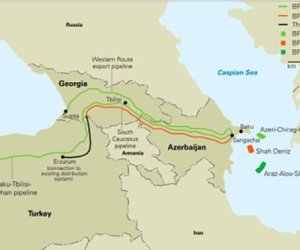


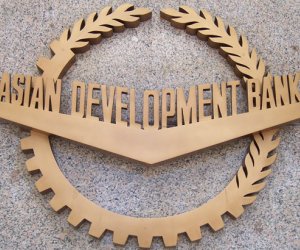
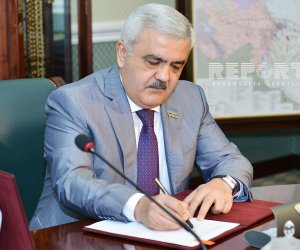
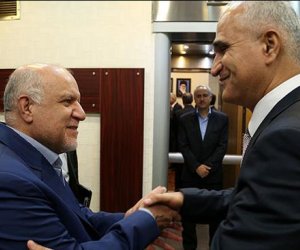



 Photo
Photo 



 Video
Video 

